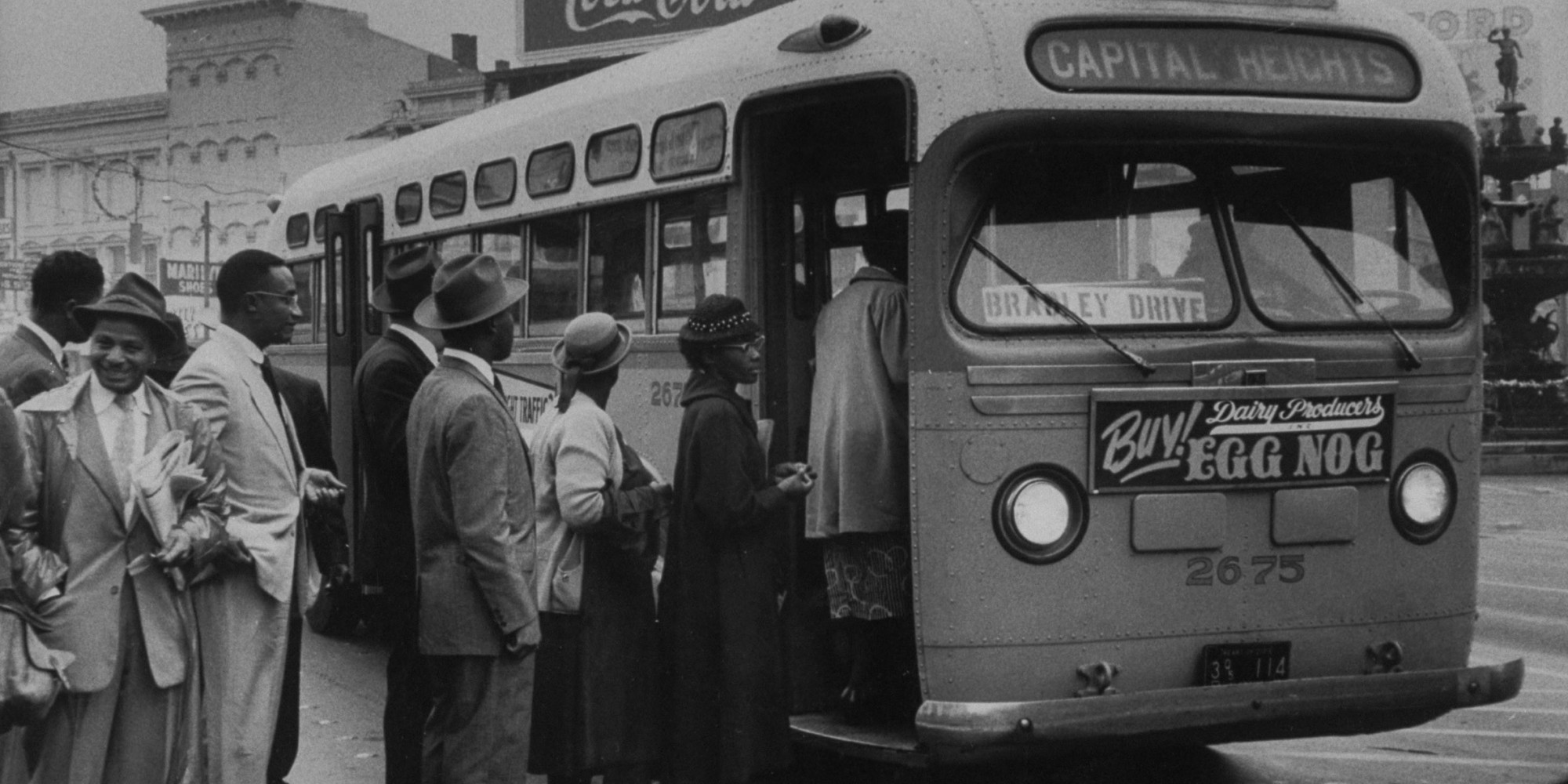
Every year for Black History Month, we spend time thinking about equity in transportation. Black history in transportation has far too often been defined by harm, trauma, and racism. The moral failure of transportation systems across the country has seeped through time and continues to harm people into the modern era. Many politicians and urban planners designed roadways to block access for Black Americans, and BIPOC individuals are targeted for enforcement at a disproportionately high rate, much too often fatally.
However, Black leaders, advocates, innovators, and resisters have also been instrumental in paving the way for safer and more equitable transportation. A more complete picture of Black history in transportation celebrates these achievements. As part of Black History Month, and TCC’s commitment to ongoing learning and mobility justice work, we want to highlight some of the leaders and activists who have led the calls for change and pushed for institutional equity in transportation systems.
When early instances of Jim Crow segregated transit and often outright barred Black Americans from traveling, a long line of resisters stood up for the rights of all people to move freely. It’s no surprise that public transit became a common and deeply meaningful stage for protest throughout the years. Long before Rosa Parks sparked a movement with her heroic act of protest on a Montgomery bus, Kate Brown refused to give up her seat on a DC bound train. In Louisville, Robert Fox, Samuel Fox, and Hoarce Pearce staged a protest on a streetcar to denounce policies that segregated and banned Black riders from traveling. Way back in 1854, Elizabeth Jennings Graham was forcibly removed from a New York City streetcar. She filed suit against the streetcar company and her case laid the groundwork that eventually led to the desegregation of New York’s public transit.
Black Americans have made significant contributions to transportation systems and policies throughout history. Numerous inventors transformed transportation safety and efficiency, including Garrett Morgan’s traffic lights with warning signals, Granville T. Woods’ troller, and Andrew Beard’s Jenny Coupler. Leaders have pushed for more people-centered transportation, including RTA’s Dr. Minnie Fell Johnson, operators of the Safe Bus Company of Winston-Salem, North Carolina, and the late Sharon D. Banks of AC Transit.
Knowing, celebrating, accepting, and reckoning with the full history of transportation helps us move toward realizing true equity. Uplifting these contributions must continue all year long, and we hope you spend some time with the resources and stories we have referenced to learn more about the rich history of leaders in transportation and carry the work forward.
Check out our full list of Mobility Justice resources here.




